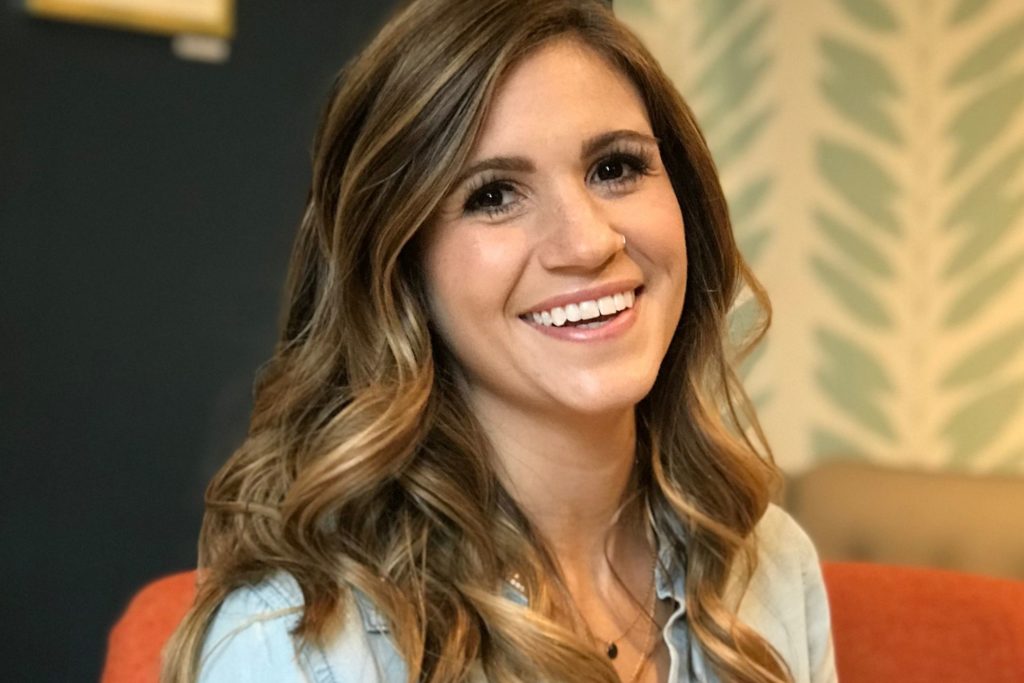The Inner Workings of Self-Esteem: An Interview

We sat down with Lauren Maltsch to get to know more about her work as a therapist as well as her insights on self-esteem and sometimes, the struggles to get it and maintain it.
What’s your definition of self-esteem?
Self-esteem is our positive sense of self, and more specifically, it is the high appraisal of our own worth. Self-esteem dictates our lens on life, influences and directs the course of our own thoughts and emotions, and dramatically impacts the relationship we have with ourselves and consequently, with others.
Who in your life experience has portrayed the kind of self-esteem you would desire in yourself?
My mother. I have admired and respected her level of self esteem all my life. She is a consistent advocate for her worth, and never settles for less than she deserves. When she returned to school and pursued a Master’s Degree in her late 40s, I admired her even more. She knew she was deserving of the opportunity, both personally and professionally, and followed through with her ambition. Then in her late 60s, she obtained her second degree black belt in Tae Kwon Do, busting through stereotypes of what people can achieve as they get older. These examples are the epitome of a fully self-actualized esteem (and frankly, being a fearless bad-a**).
What is a common narrative for a person who struggles with self-esteem?
Someone with low self-esteem will frequently express shame or a belief that one is flawed and subsequently unworthy of love, acceptance, and belonging. As a result of this belief, a person will often develop an intense fear of failure that can lead to over extension, a lack of healthy boundaries, and a fear of saying ‘no.’
How do you approach building one’s self-esteem?
One of the best parts about being a therapist is that I often serve as a sounding board for my clients. When our thoughts are externalized, especially to someone objective and unbiased, we hear them much more clearly. It is a powerful tool, especially with the work that needs to be done around self-esteem. Clients must first identify unhealthy patterns of thoughts, feelings, and behaviors. Once self-awareness is fully developed, a person can begin to challenge their own criticisms and negative assumptions.
It is no small thing to reframe and literally rewrite the foundational thoughts that exist in our minds, holding us back. Simply put, our thoughts directly influence our behavior. We can not afford to walk around thinking we are not good enough to pursue more with the one life we have to live. It becomes a self-fulfilling prophecy to do so. It is just too important.
Do you feel there is a correlation between the people we surround ourselves with and the way we feel about ourselves?
Absolutely, 100%. Unfortunately, people with low self-esteem often look to their surroundings for validation rather than finding or creating it within themselves. I like to recommend that people remove social media from their phones, even if only temporarily, because for most people, it is a platform for comparing themselves to those they follow. Learning that self-esteem is not based on how you measure up to others is key in being able to find internal validation.
If self-esteem is inherently driven and maintained from a person’s inner world, how do we protect ourselves from a sometimes brutal outer world?
There are two components of self-esteem, I believe, that are important to cultivate over the course of one’s life experience and subsequent sense of self: compassion and resiliency.
Self-compassion is crucial to learn, especially in a world that can be so critical and judgemental. To cultivate it, we must first understand and accept our flaws, failures, and losses. When we stop fighting against that, it becomes a lot easier to let others in and embrace this shared experience of humanity. Any obsessions with perfectionism lends itself to inner criticism, disrupting the inner peace that can come instead from compassion.
Resiliency—the ability to adapt well in the face of difficulties—is not something people are either born with or without, rather, it can be developed and strengthened over time. To foster it, I challenge my clients to dig deeper and move beyond their first emotional impulses that come in response to setbacks. We are all allowed a period to mourn and grieve the terrible things that happen to us, and we should. But we can not stay there indefinitely. Finding inner strength and the capacity to continue moving forward is a survival mechanism each of us deserves.
People tend to realize that when they call on inner compassion and resilience in moments of difficulty, that their self esteem was buried there the whole time. Nothing is more inspiring to witness than that discovery.
Lauren is a mental health therapist at Elle who works in tandem with Kristen to treat those who struggle with low self-esteem. Cultivate your inner self worth working with one of our therapists and take part in our MindBody Therapy program, tailored specifically to improve self-esteem.


Comments are closed.